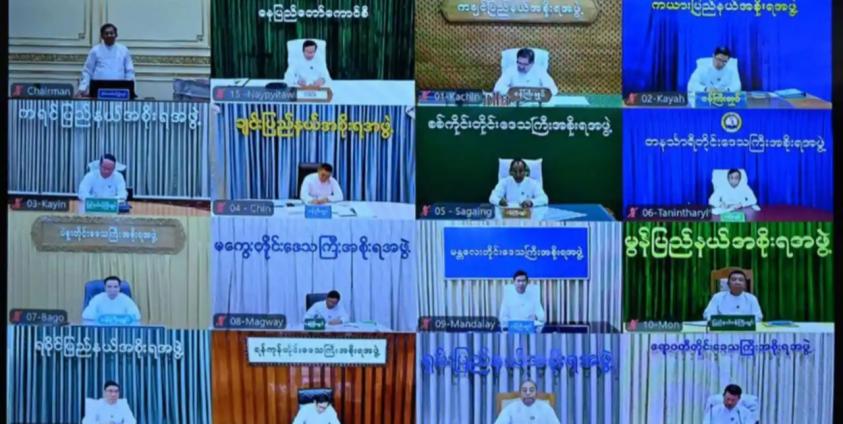Despite intensifying resistance battles against the coup across Myanmar, the coup junta head still insists that the general elections, deemed his only political exit, will proceed as planned.
At the junta's cabinet meeting on July 5, coup leader Min Aung Hlaing stated that once the population census is completed, the process of compiling the list of eligible voters will follow.
The junta has announced that the nationwide population census, considered a crucial step in pre-election preparations, will be implemented starting in early October.
The coup leader added that the population census will be carried out as far as possible in territories with challenges and limitations, including military conflicts, and that people displaced for various reasons will be systematically listed according to their relevant states and regions for the census.
U Than Soe Naing, a political analyst, commented that with 70 percent of Myanmar under the threat of war or active armed conflict, the junta will likely only be able to conduct the population census in the remaining few territories still under its firm control.
"In terms of territory, 70 percent of Myanmar is either in conflict zones or under the control of ethnic armed organizations (EAOs). Conducting a population census in these areas is almost impossible. However, out of over 300 cities and towns nationwide, about 200 remain under the junta's control. Therefore, the junta will focus its census efforts primarily in urban areas. For the coup leader, holding general elections remains his sole political exit strategy, compelling him to pursue this goal by any means necessary”, he elaborated.
According to the junta's announcements, the population census will utilize a computer-aided system for recording individual information and will be conducted door-to-door by census staff using mobile tablets.
Since June 12, the junta has begun erecting billboards in urban areas under its full control to promote and educate the public about the upcoming population census.
However, in areas where resistance warfare is strong, the junta can only carry out such activities in a few downtown areas. In Arakan (Rakhine) State and northern Shan State, where the fighting is very intense, the junta has not been able to initiate any pre-election planning including the census.
“Unless there's a sudden shift in the military situation, the coup leader will proceed with the elections. He intends to hold them in approximately 200 cities and towns currently under his control. As I said, general elections represent his sole political exit strategy”, U Than Soe Naing added.
So far, the junta has allowed 49 political parties to register for the election under its amended Political Parties Registration Law. Meanwhile, in response to the escalating conflicts nationwide, the junta has activated the conscription law to bolster its dwindling manpower, and conscription is currently underway.
Currently, 'Operation 1027', which had been dormant for several months under a ceasefire agreement, has been reactivated, leading to renewed fighting in northern Shan State. In Arakan State, the junta has faced a series of setbacks for several months due to the ongoing offensive by the Arakha Army (AA).







